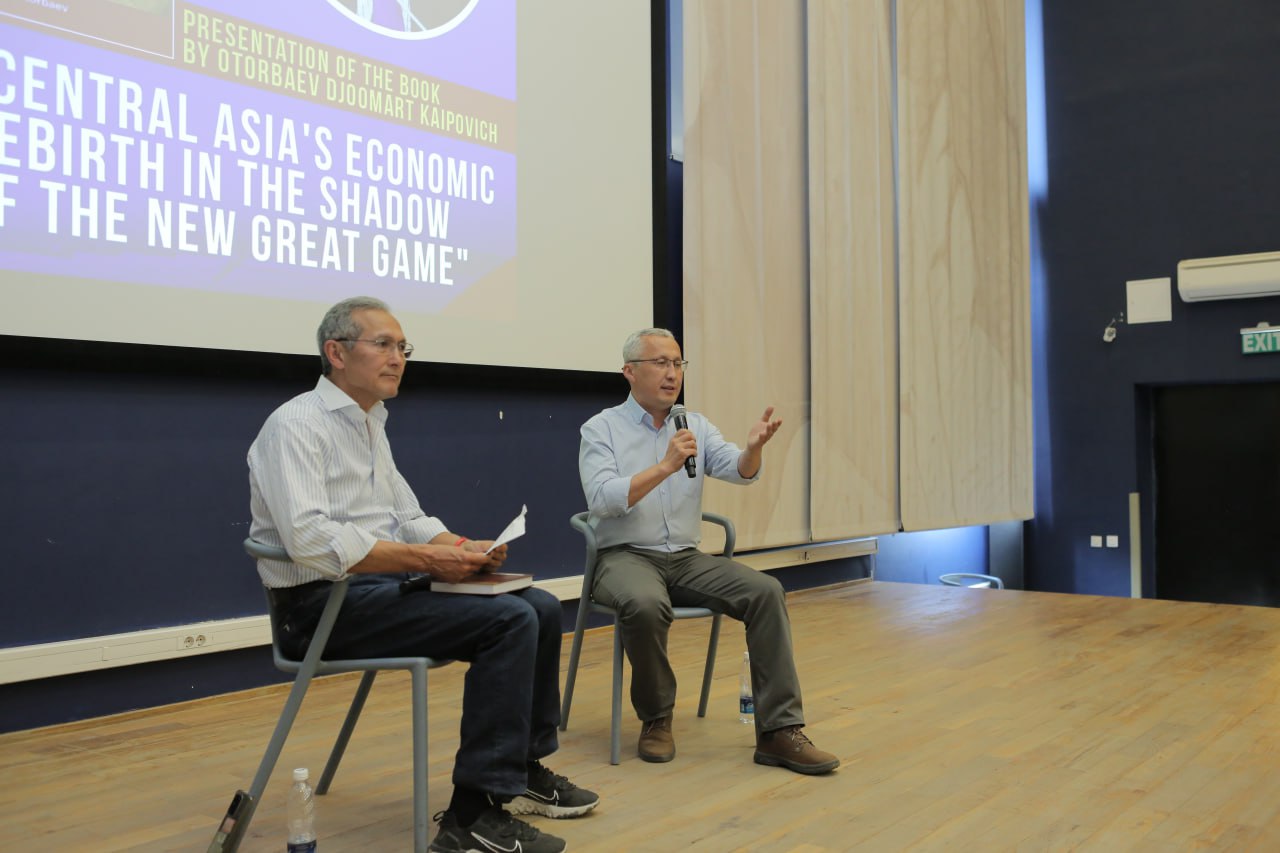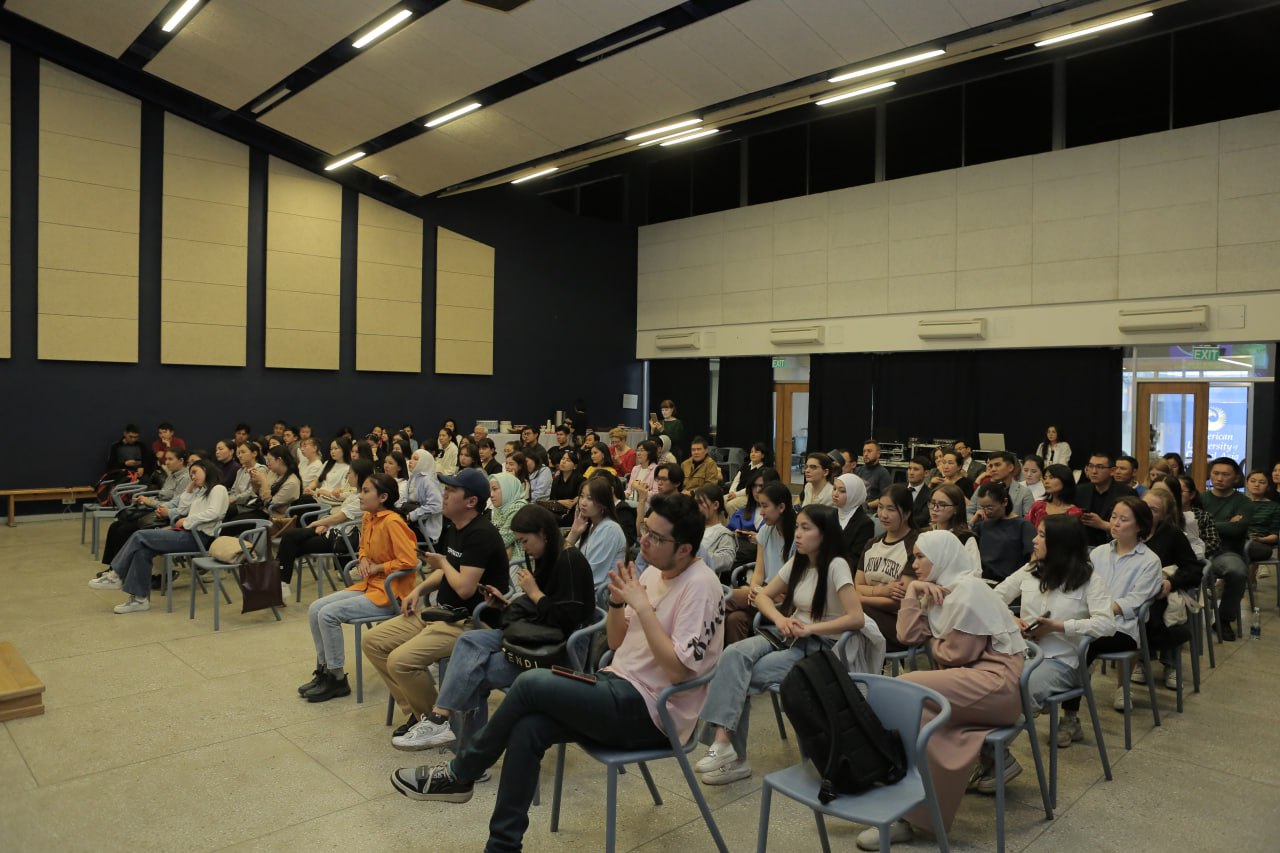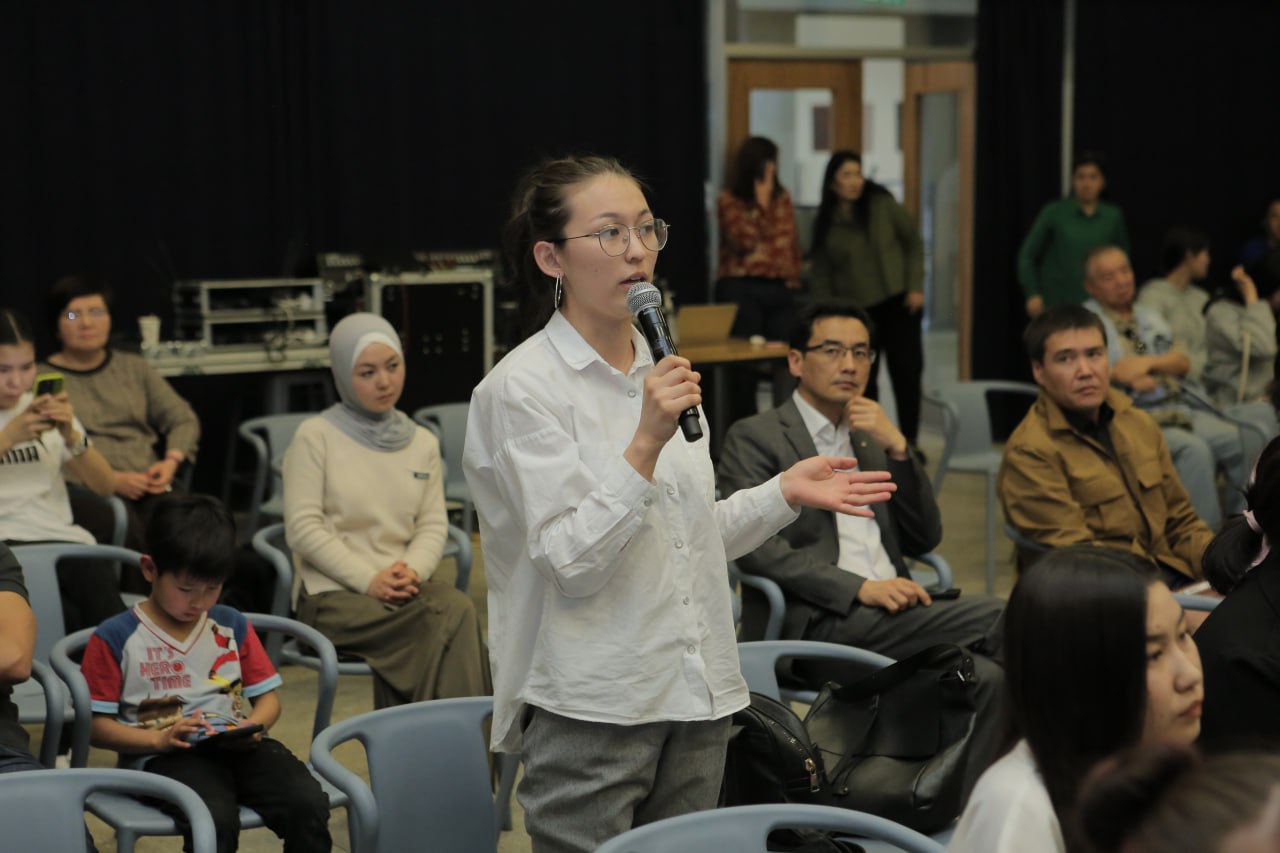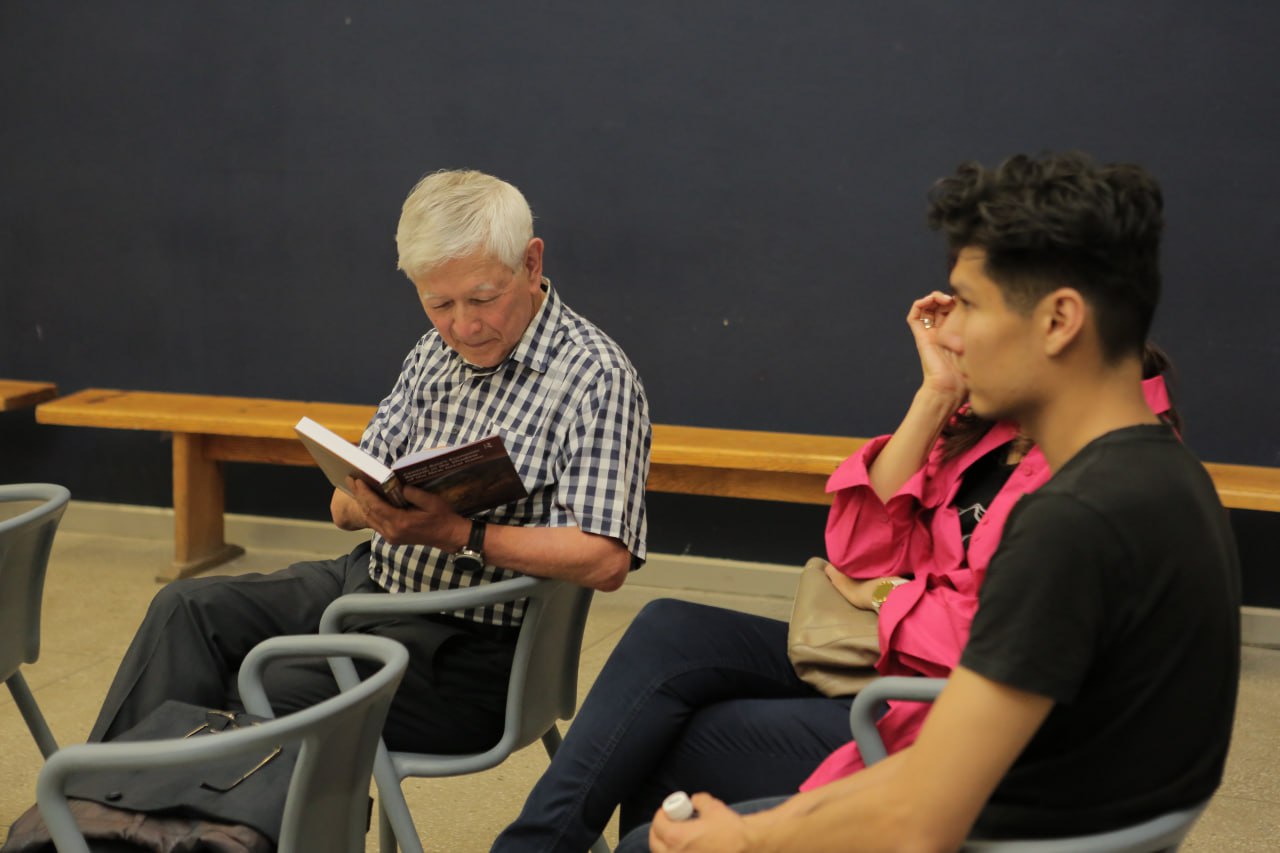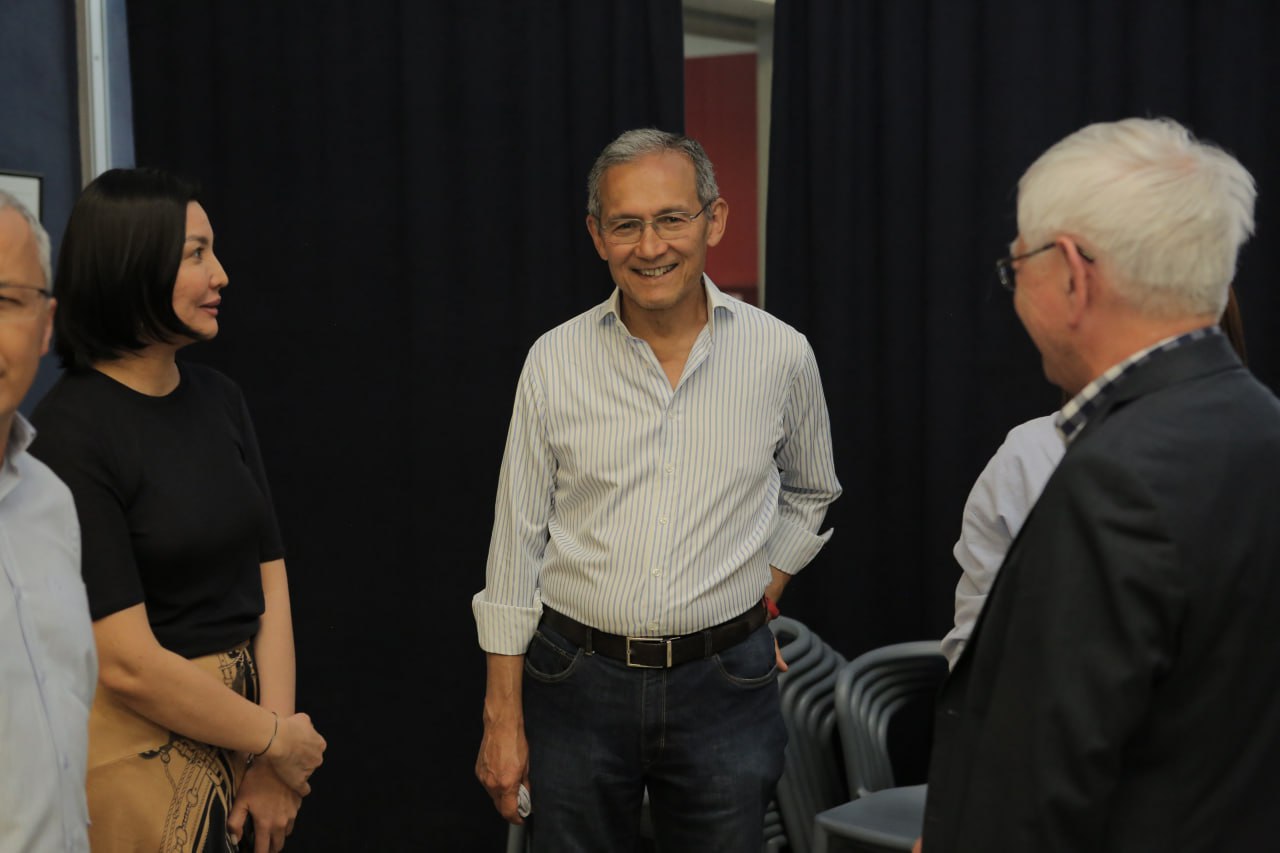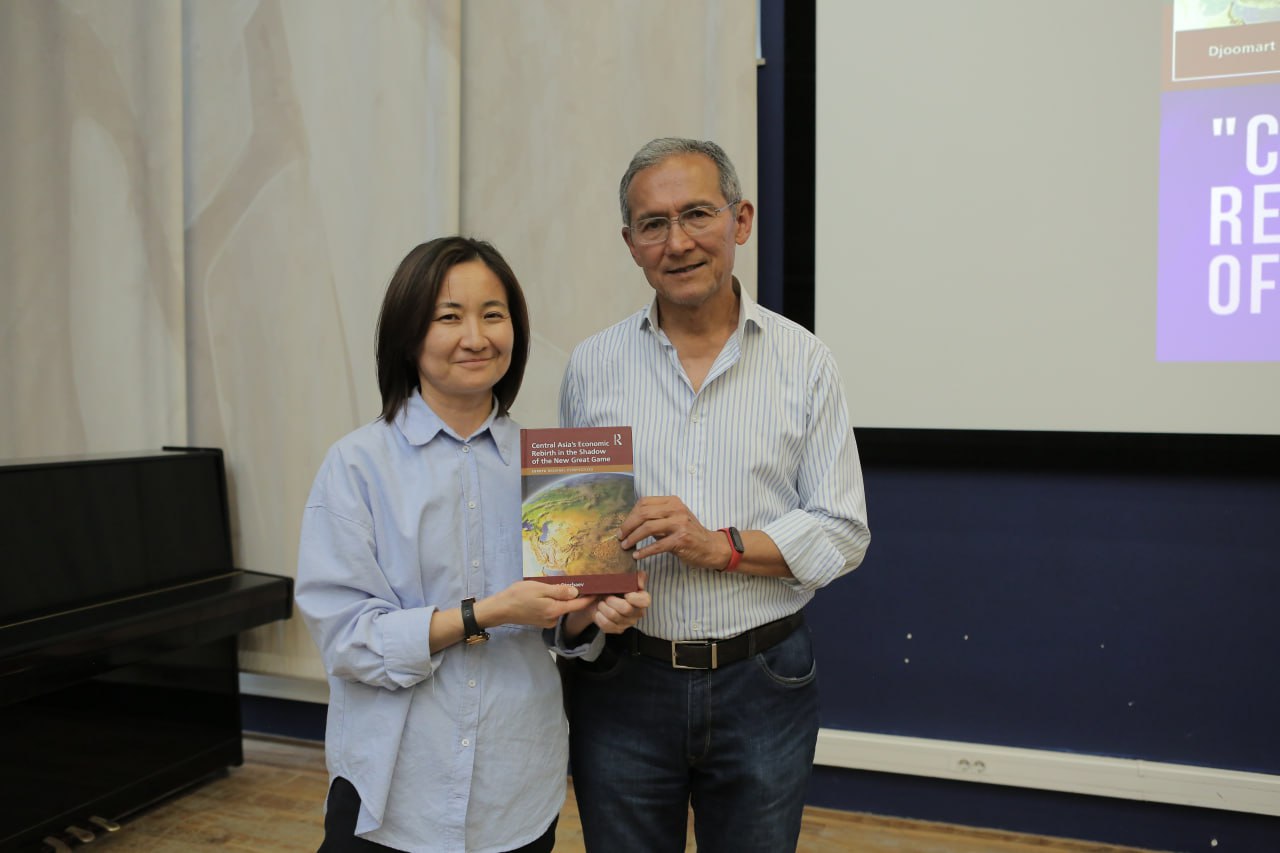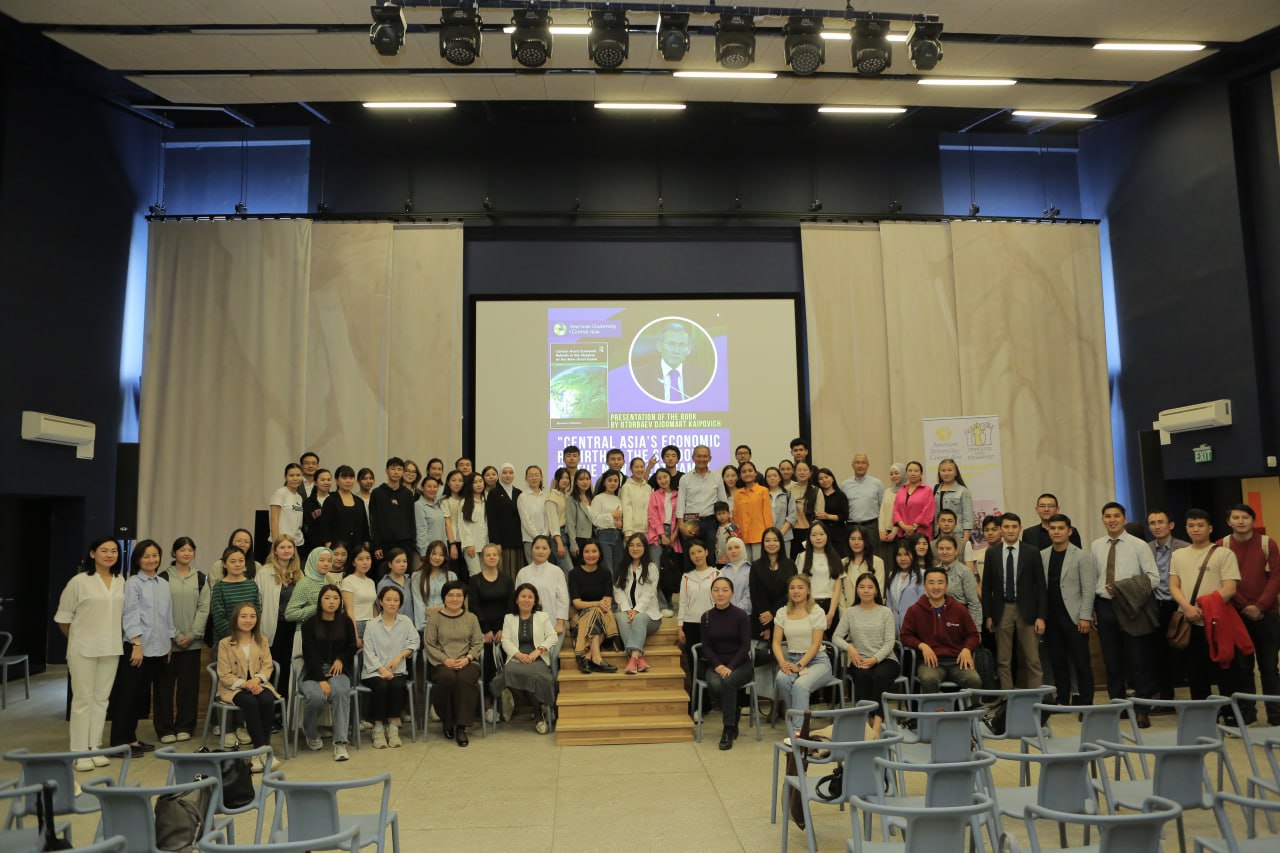Central Asia’s Economic Rebirth in the Shadow of the New Great Game
May 10, 2023
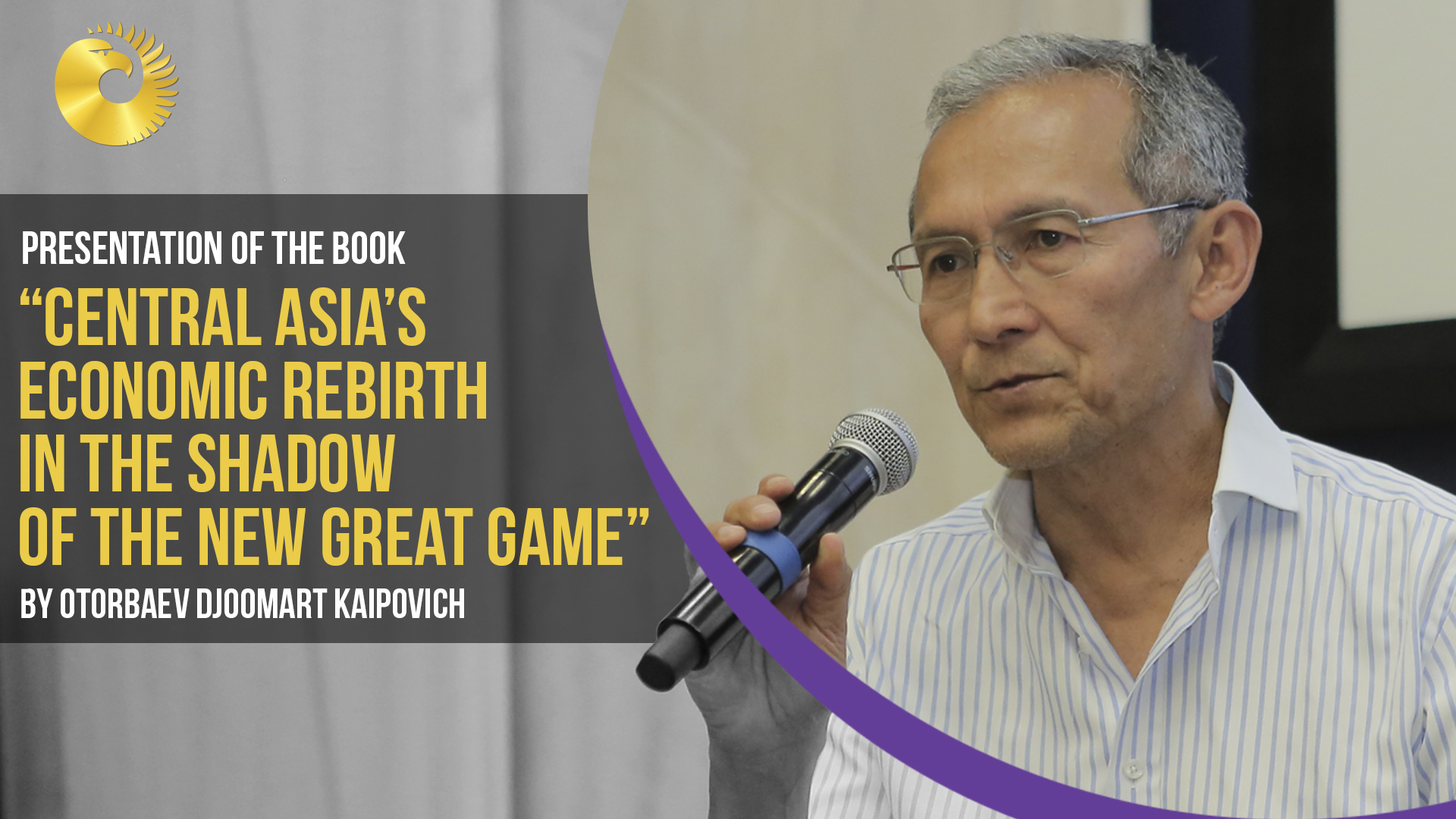
AUCA hosted the former Prime Minister of Kyrgyzstan, Otorbaev Djoomart Kaipovich, on Thursday, April 12. He presented his book "Central Asia's Economic Rebirth in the Shadow of the New Great Game." Medet Tiulegenov, Assistant Professor of the International and Comparative Politics Department, was the moderator on this occasion.
Otorbaev Djoomart Kaipovich started his presentation by explaining that his main job is to raise questions, and he hopes to be helpful. He remarked that he wrote this book reasonably quickly, in six months, due to the quarantine linked to Covid.
The former Prime Minister first mentioned that AUCA is a gorgeous institution. He always had this ambition to see the best students gathered from all over the Region and was indeed one of those who convinced George Soros at the time to become one of the first investors of AUCA. At the same time, the collaboration with the Open Society Foundation started. Moreover, Otorbaev Djoomart Kaipovich said that the University should be renamed, which at the time was the American University of Kyrgyzstan, and not of Central Asia. He also wants to continue to push this institute to the best of its ability.
Secondly, the former Prime Minister explains that his book is about the economy to show how countries have survived since 1991 and their future. This book contains many analyzes of the economic development of the five countries of Central Asia: water, energy transport, cooperation, etc. Finally, he claims that Kyrgyzstan is between the "shadows" of China and Russia, but the country is "trying to escape."
Otorbaev Djoomart Kaipovich returns to the fact that a country of 7 million inhabitants is unimportant. So, the question is: how to become important? The first answer, according to him, is that Kyrgyzstan must become part of Central Asia. So the five countries must be all together.
As he explains, Kyrgyzstan has an inconvenient geographical location. Since the country does not have access to the sea, it is challenging to conclude treaties. The former Prime Minister, therefore, places much hope in the traffic and the corridors. As he says, when you have transport connectivity, the country can develop. He draws a parallel with his book, revealing that part of it is about turning that landlock into an opening, not just to survive but to grow.
Otorbaev Djoomart Kaipovich is convinced that the future of Central Asia is excellent and promising if the population of the 5 countries works together and that the Region enjoys good connections, as well as good logistics with China and Europe. For him, the entire Asian continent may produce 50% of the world's GDP in 20 years.
Finally, the former Prime Minister is very insistent that AUCA will breed many highly educated people. Central Asia's and its people's future is dominant in the speech of Otorbaev Djoomart Kaipovich. His optimism about the future of the Region is enormous.
